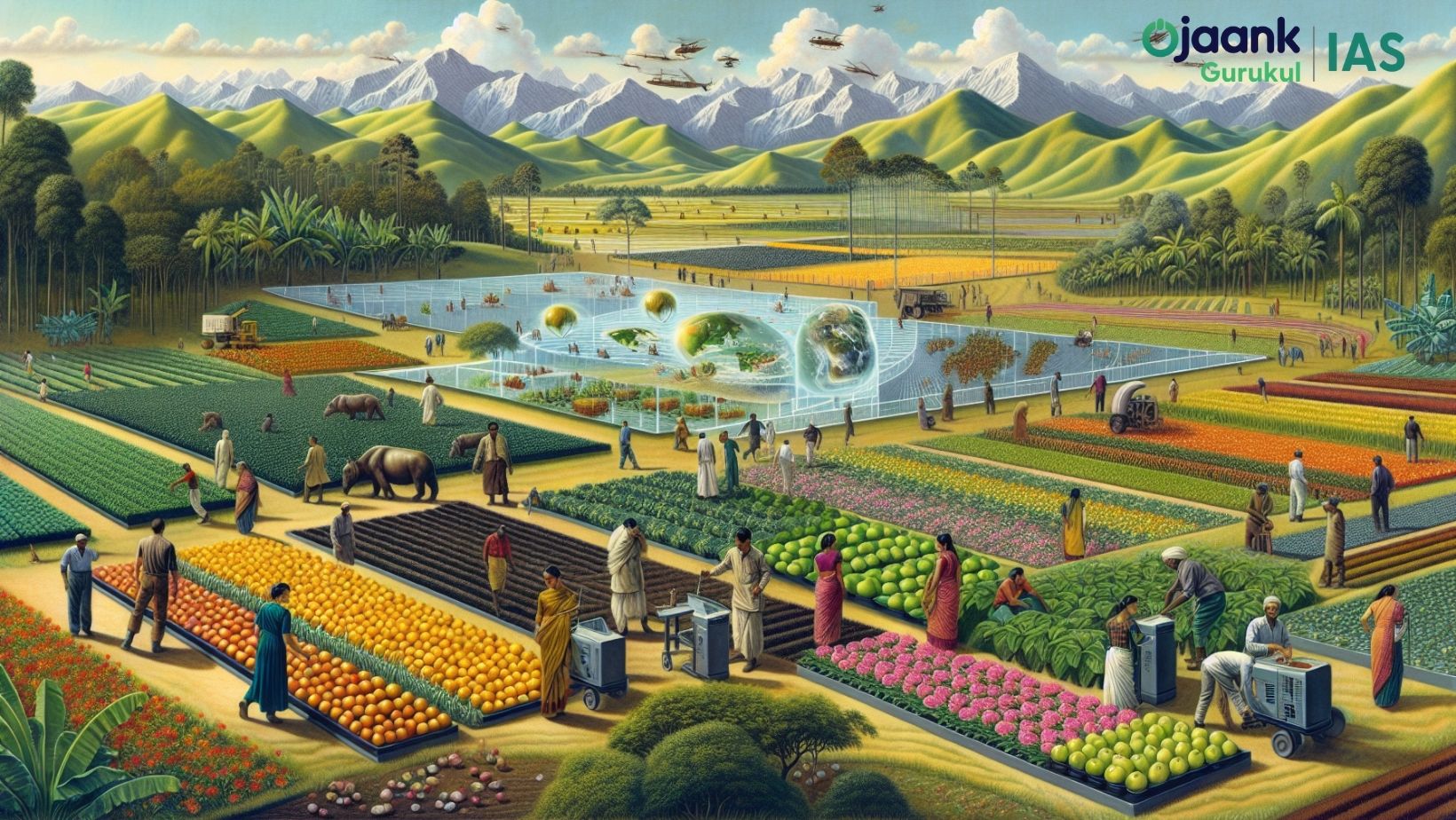Clean Plant Programme

Revolutionizing Agriculture: The Clean Plant Programme in India
Clean Plant Programme: Transforming India's Fruit Crop Industry
Table of Contents
Introduction
The Clean Plant Programme is set to revolutionize India's fruit crop industry. This innovative initiative aims to provide farmers with disease-free, high-quality planting materials, ensuring better crop yields and improved fruit quality. By establishing a network of Clean Plant Centers (CPCs) across the country, the programme addresses the long-standing issue of plant diseases and low productivity in the fruit sector.
Clean Plant Centers: The Backbone of the Programme
At the heart of the Clean Plant Programme are nine world-class Clean Plant Centers strategically located across India. These centers are designed to cater to specific fruit crops, taking into account the unique climatic and geographical conditions of each region.
Key Features of Clean Plant Centers:
-
Advanced diagnostic laboratories
-
State-of-the-art therapy facilities
-
Cutting-edge tissue culture units
Distribution of Clean Plant Centers:
-
Pune: Focused on grapes
-
Srinagar & Mukteshwar: Specializing in temperate fruits like apple, almond, and walnut
-
Nagpur & Bikaner: Dedicated to citrus fruits
-
Bangalore: Concentrating on mango, guava, and avocado
-
Lucknow: Specializing in mango, guava, and litchi
-
Sholapur: Focused on pomegranate
-
Eastern India: Catering to tropical and sub-tropical fruits
These centers will serve as hubs for producing and distributing clean planting materials, ensuring that farmers have access to the best quality seedlings and saplings for their orchards.
Certification and Legal Framework
To maintain the integrity of the Clean Plant Programme, a robust certification system will be implemented. This system will ensure that all planting materials produced and sold under the programme meet the highest standards of quality and health.
Key aspects of the certification and legal framework:
-
Stringent quality control measures
-
Traceability of planting materials
-
Regulations under the Seeds Act of 1966
The legal framework will provide the necessary support to enforce these standards, giving farmers confidence in the authenticity and quality of the planting materials they purchase.
Enhanced Infrastructure for Nurseries
The Clean Plant Programme recognizes the crucial role of nurseries in multiplying and distributing clean planting materials. To support this vital link in the supply chain, the programme will provide assistance to large nurseries for developing the necessary infrastructure.
Areas of support for nurseries:
-
Modern propagation techniques
-
Climate-controlled environments
-
Advanced irrigation systems
-
Quality control laboratories
By enhancing the capabilities of nurseries, the programme aims to ensure a steady and reliable supply of clean planting materials to farmers across the country.
Impact on Indian Agriculture
The Clean Plant Programme is expected to have a significant impact on India's agricultural sector, particularly in fruit crop production. Some of the anticipated benefits include:
-
Increased productivity: Disease-free planting materials will lead to healthier crops and higher yields.
-
Improved fruit quality: Clean plants will produce better quality fruits, enhancing market value and export potential.
-
Reduced pesticide usage: Healthier plants will require fewer chemical interventions, promoting sustainable farming practices.
-
Enhanced farmer income: Higher yields and better quality fruits will translate to increased profits for farmers.
-
Boost to the economy: The fruit crop industry's growth will contribute to overall agricultural GDP.
For more information on the economic impact of clean plant initiatives, visit the Food and Agriculture Organization (FAO) website.
Conclusion
The Clean Plant Programme represents a significant step forward in India's agricultural development. By providing farmers with access to high-quality, disease-free planting materials, the programme lays the foundation for a more productive and sustainable fruit crop industry. As the Clean Plant Centers become operational and the certification system takes effect, we can expect to see a transformation in the quality and quantity of fruit production across the country.
To learn more about the Clean Plant Programme and how it can benefit your farming practices, contact your local agricultural extension office or visit the Indian Council of Agricultural Research (ICAR) website.